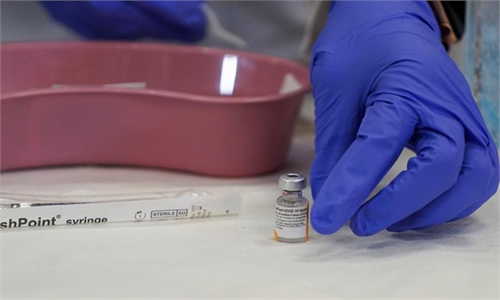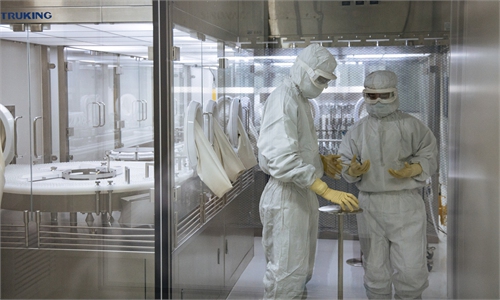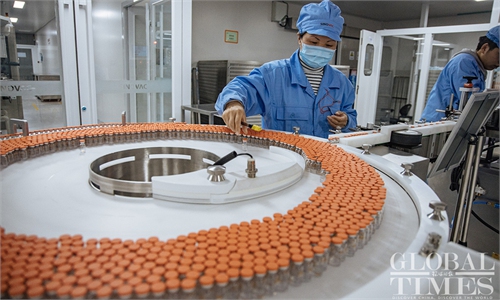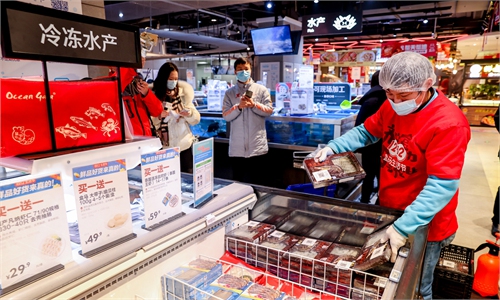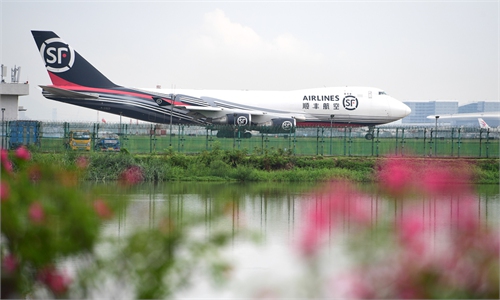More funds set aside for special plans including adverse reactions to vaccines
Insurance companies are setting aside more funds to expand special plans related to the Covid-19 pandemic, including covering any adverse reaction from vaccination.
While health experts have said that any side effect from Covid-19 vaccines is rare, the coverage is a precautionary measure.
Most insurance firms have extended their coverage of cash aid for hospitalisation and death from Covid-19, which was supposed to end in December 2020, until this year.
The benefits are for existing and new policyholders at no additional cost for an allocated period of time or until the fund limit is reached.
National Association of Malaysian Life Insurance and Family Takaful Advisors (Namlifa) president A.M. Naidu said insurers had been very supportive of the government’s aspirations to include private healthcare providers in treating Covid-19 patients.
“They have allocations to compensate their insured clients on test reimbursement, admission bills and for treating side effects out of the Covid-19 treatment.
“Now, they are ready to cover the costs of treatment for the side effects of vaccination.
“Some insurers even provide a one-time lump sum compensation to their life insurance clients who test positive for Covid-19, ” Naidu said.
These insurance benefits are on top of the government’s announcement to give ex-gratia payments via a compensation scheme to those who experience serious side effects after receiving the vaccine.
Khairy Jamaluddin, the coordinating minister for the immunisation programme, had said details like the payment amount would be announced soon.
Namlifa, said Naidu, would continue its engagement with the Life Insurance Association of Malaysia (LIAM), the Malaysian Takaful Association (MTA) and Bank Negara to ensure transparency and fairness towards the insured public in all their initiatives.
“We are even prepared to engage with the Health and Finance ministries in providing feedback and proposals to the government, ” he said.
Tokio Marine insurance agent Janice Khaw said insurance companies were now extending new medical care assistance in view of the prolonged pandemic and the inclusion of private hospitals for Covid-19 treatment.
“A RM5mil medical assistance fund is allocated to support customers who need to be transferred to private hospitals for Covid-19 treatment under the government’s order.
“Customers treated at private hospitals from Feb 20 to June 30 this year can claim up to RM5,000 under Category 3, RM10,000 for Category 4 and RM20,000 for Category 5, ” said Khaw.
The categories relate to the severity of the disease – from Category 1 for asymptomatic patients and Category 5 for those critically ill.
Tokio Marine Life medical plan customers, said Khaw, could also receive reimbursement for medical bills of up to RM5,000 should they experience any adverse effect from the Covid-19 vaccine, adding that the benefit was applicable from Feb 20 to Dec 31,2021.
Unit manager for Prudential Zaid Mohamed Nyan said although treatment related to diseases caused by a pandemic was excluded from insurance coverage, most companies had initiated special plans for Covid-19 patients as a campaign based on goodwill.
“Prudential offers post-Covid-19 vaccination coverage with a fund limit of RM1mil, which ends on Dec 31,2021, or when the fund limit is reached, ” he said.
The coverage is provided for all Prudential customers eligible to receive RM500 in cash relief for hospitalisation in the country due to serious adverse effects from Covid-19 immunisation.
“Eligible clients can also receive reimbursement based on moderate to severe illness from Covid-19, with up to RM5,000 for Category 3 patients, RM15,000 for Category 4 and RM20,000 for Category 5.
“This excludes home quarantine. Patients in Category three to five who need to quarantine and receive treatment at government hospitals can receive a cash relief of RM1,000, ” he said.
The plans, which are covered under the Covid-19 Hospitalisation assistance and Covid-19 Upgraded Plan Assistance with a RM20mil allocation will end on March 31,2021, or when the limit is reached.
“The coverage is set in an allocated period but can be extended from time to time, depending on the company’s view of the current Covid-19 situation in the country, ” said Zaid.
For Zurich life insurance and family takaful customers, those hospitalised due to Covid-19 are eligible to receive a maximum amount of RM100 per day for up to five days.
“If you own a policy or a certificate that provides death benefit, an additional death benefit of RM10,000 will be provided should death occur due to Covid-19, ” it said on its website.
The benefits are extended to existing and new customers until March 31,2021.
Similarly, insurance provider AIA Malaysia said in view of the ongoing pandemic, it was committed to continuing giving extra Covid-19 coverage.
For instance, eligible policyholders can receive hospitalisation benefit of RM200 per day for up to 30 days if they are diagnosed with Covid-19 and directed to be quarantined at any of the Health Ministry’s designated hospital or quarantine centre.
“Home quarantine and elective quarantine at any hospital are excluded, ” said the company on its website.
In the unfortunate event of death due to Covid-19, an additional lump sum coverage of RM10,000 per life will be paid to his or her beneficiary.
The coverage will only be until March 31 this year.
Plans by other companies such as Manulife Insurance Bhd include coverage for customers who need to observe home quarantine as ordered by the Health Ministry.
“A daily benefit of RM200 will be payable to the insured person upon being diagnosed with Covid-19 and hospitalised at designated hospitals or quarantined at Low-Risk Treatment Centres or at home, ” it said, adding that this had a cap of 30 days.
“The coverage of Home Quarantine starts from Jan 29,2021, onwards, ” it said.
Beneficiaries are also eligible to receive a lump sum of RM10,000 in the event of death caused by Covid-19 while an additional RM5,000 is provided if the individual is a medical staff involved in the handling of Covid-19 cases.
Besides hospitalisation coverage, the Life Insurance Association of Malaysia has also allocated RM8mil for the Covid-19 Test Fund in support of the Health Ministry’s efforts to conduct more tests.
This is applicable for all medical insurance policyholders and takaful certificate holders who undergo Covid-19 tests at recognised private labs.
A maximum amount of RM300 is claimable and the reimbursement is valid until June 30 or when the fund is fully used.
Related posts:
Getting ready for Covid-19 vaccines
Inject awareness’ of how Covid-19 vaccine works
Convincing the non-believers for vaccination
Vaccination feature appears in MySejahtera app
26.5 million Malayians to get jab
Largest immunisation plan in nation’s history to end the war

MySejahtera for the Covid-19 vaccination registration to get immunised







